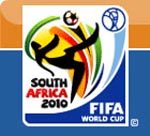For the past five years, human traffickers have been using the 2010 FIFA World Cup as a ‘bait' to lure people to work in South Africa at construction sites and accommodation establishments, as escorts, stadium marshals and many more, a Bizcommunity.com investigation has found.
“This is an African World Cup and every African must somehow benefit from it,” a human trafficker told Bizcommunity.com this week, requesting ‘absolute' anonymity.
Since 2004, the year SA was chosen to organise the World Cup, human trafficking ‘offices' have been opened at various African countries, where unscrupulous people working as ‘agents' register desperate people dying to get to the ‘final destination' (SA) to seek any form of employment or business opportunities.
“Our agents coordinate our clients' travel arrangements and send them to a certain point, where I go fetch them and bring them into SA from Beit Bridge.
“With no passports, no visa or any form of paper, their entry is guaranteed by our connections and it is easy as long as you can speak the correct language,” the source said, referring to bribes.
Business is booming
The source said business has been booming since 2004, adding every month they bring at least 50, 70 and sometimes 100 people, which makes it close to 1200 people each year, at a price ranging from US$2000 (about R15 000) to US$6000 (about R44 500), depending on the country of departure.
“Many women are now registering more than men because they believe they can offer their services to tourists and soccer fans during the World Cup.”
But victims get the shock of their lives when they find out that they are there are no jobs, and left to fend for themselves, and sometimes being forced into sex slavery and prostitution, arranged marriages, 419 scams and drug pushing.
A human trafficking victim, who asked not to be named, said: “I was promised a job at a luxury hotel that is frequented by European tourists, but it never materialised and now I am suffering here and regretting falling prey to this scam.”
Asked if she could recognise the person who brought them here, she said:
“If I see his face, I would surely recognise him but he is nowhere to be seen. But one day we will meet somewhere,” she said emotionally.
Media must do its bit to expose an industry that is sordid and exploitative
According to the Office to Monitor and Combat Trafficking Persons of the US State Department, at least 800 000 people are trafficked each year across international borders, 80% of which are women and girls.
“The trafficking industry is represented as sordid and exploitative, with traffickers being condemned and victims portrayed as deserving assistance,” Gender Links South Africa reported in its Cyber Dialogues - Making It Work for Gender Justice.
The International Organisation for Migration (IOM) said that without appropriate language skills, supportive social network, and laws and customs that she understands, the trafficked woman feels isolated and disoriented, and it is this feeling that makes her particularly vulnerable to exploitation.
Author and media analyst Denis Kayenge Kinkufi said African media must give a helping hand to forcefully expose human trafficking.
“When media is too much involved in political and sensational reporting, it tends to overlook dangerous social ills that affect society, and as a society's watchdog, the media has a duty to denounce aggressively this shameful practice.”
The trafficker said: “We are not criminals and we have done nothing wrong. On the contrary we are helping people help themselves and in the process helping Africa to eradicate poverty and destitution. There is so much misery and hunger out there, and the 2010 is a golden opportunity to be seized with both hands.
Visit www.genderlinks.org.za and www.iom.int.




































